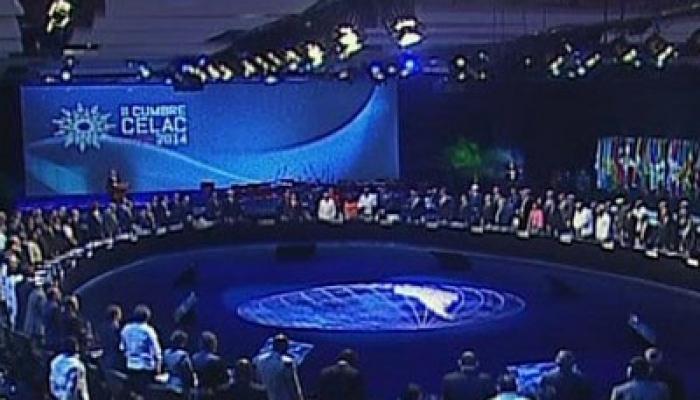Havana, January 30 (RHC)-- The Declaration of Havana, adopted on Wednesday by the summit of the Community of Latin American and Caribbean States, reaffirmed the role of the bloc as a regional space for dialog and political coordination.
The document stresses the determination to jointly work for the wellbeing of the people of regional countries and expresses the need to advance regional integration.
The 83-paragraph document also includes the main tasks to undertake the bloc and the problems facing the region in all areas.
The declaration reiterates the CELAC member states position that unity and integration must progressively be achieved, with flexibility, respect to diversity and to the right of each state to choose its own political and economic system.
Comprehensive and inclusive development is a priority expressed in the document, in order to guarantee sustainable and productive progress, in harmony with the environment.
The heads of state also expressed in the declaration their determination to jointly work in order to face the challenges posed by the current world situation and to boost economic growth that favor social inclusion and equality.
Emphasis is put on the need to work for food security, literacy, education the development of agriculture and the achievement of universal public health services.
The Latin American and Caribbean nature of Puerto Rico was reiterated in the document as well as the commitment to work so that Latin America and the Caribbean be a territory free of colonialism.
The document rejects unilateral certification of states related to terrorism, drug trafficking, and other categories, including the US blacklisting of Cuba as a state sponsor of terrorism. The text also backs the Argentinean claim over the Malvinas Islands.
Also included is the rejection of the over-50-year U.S. economic, commercial and financial blockade of Cuba.
The summit was attended by 29 presidents, the president-elect of Chile, Michelle Bachelet, and other representatives. During two days, the sessions addressed a large array of issues relevant to the problems facing our region, particularly the fight against hunger, poverty and inequalities.
You can read more about this important regional meeting at http://celac.cubaminrex.cu/en


